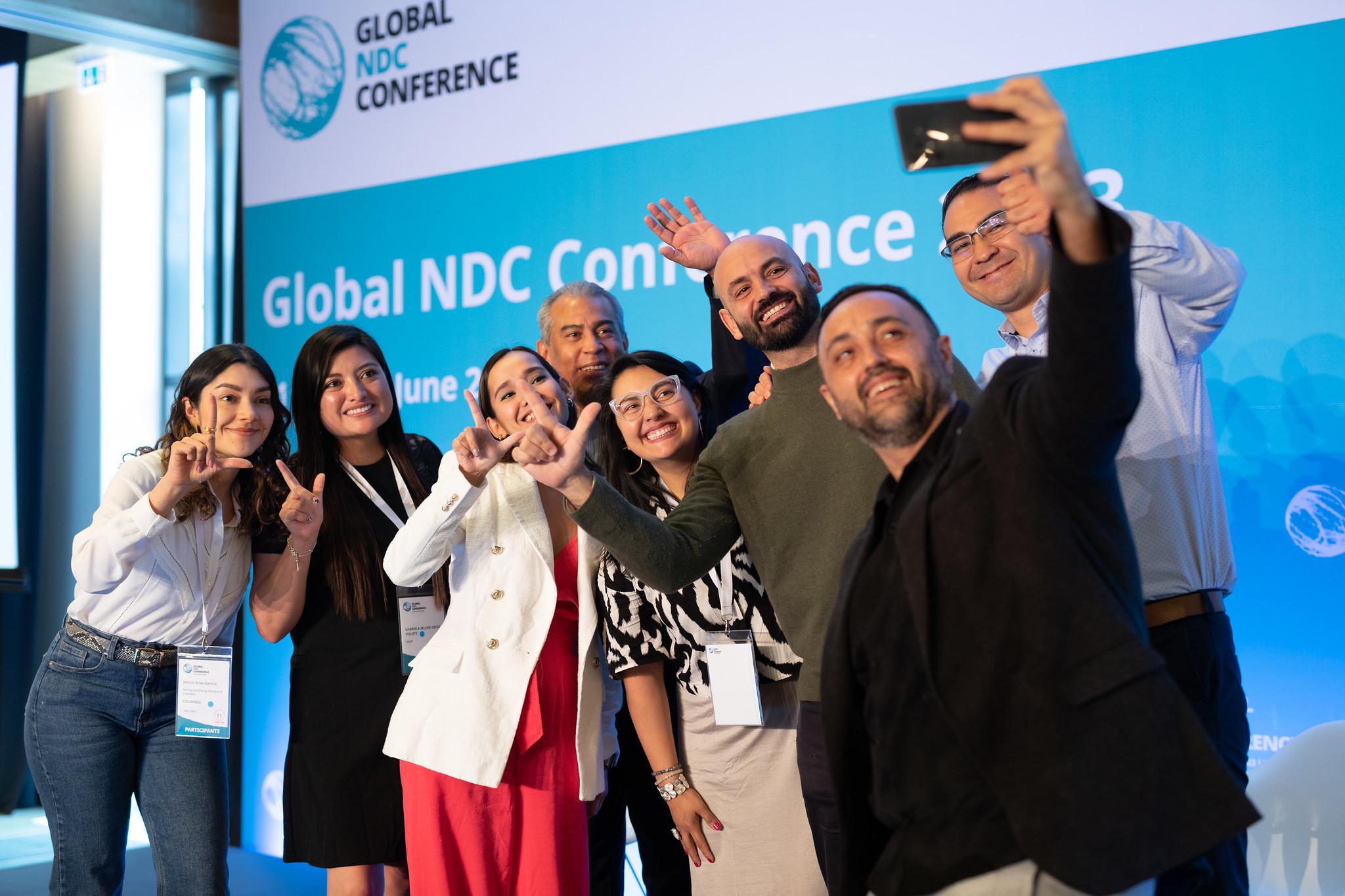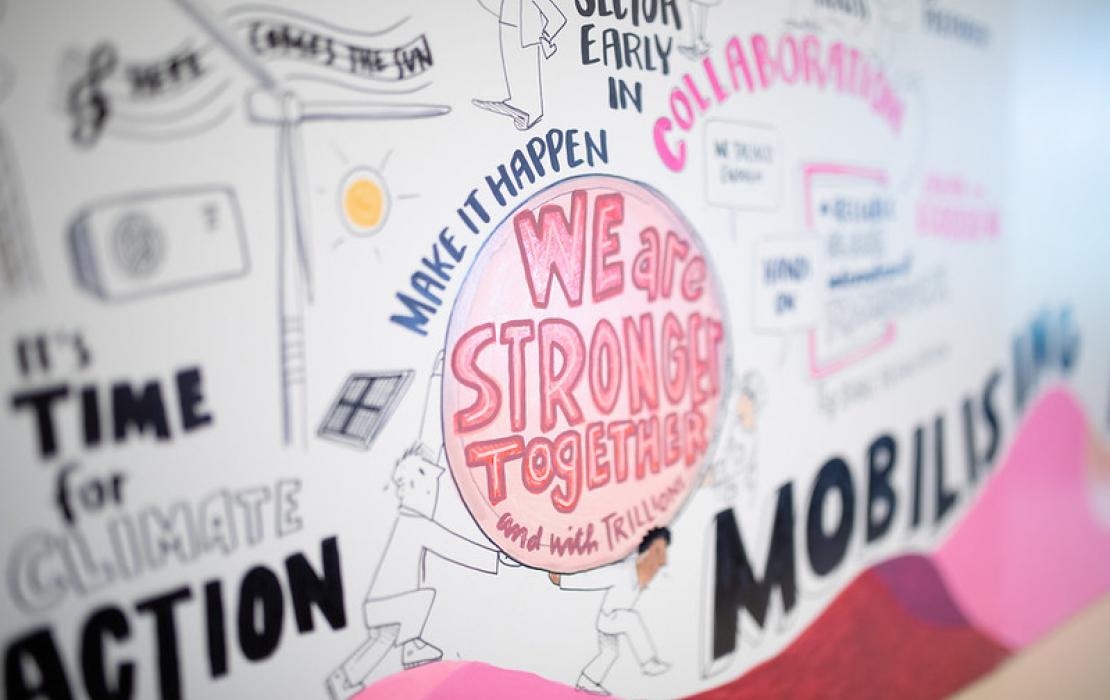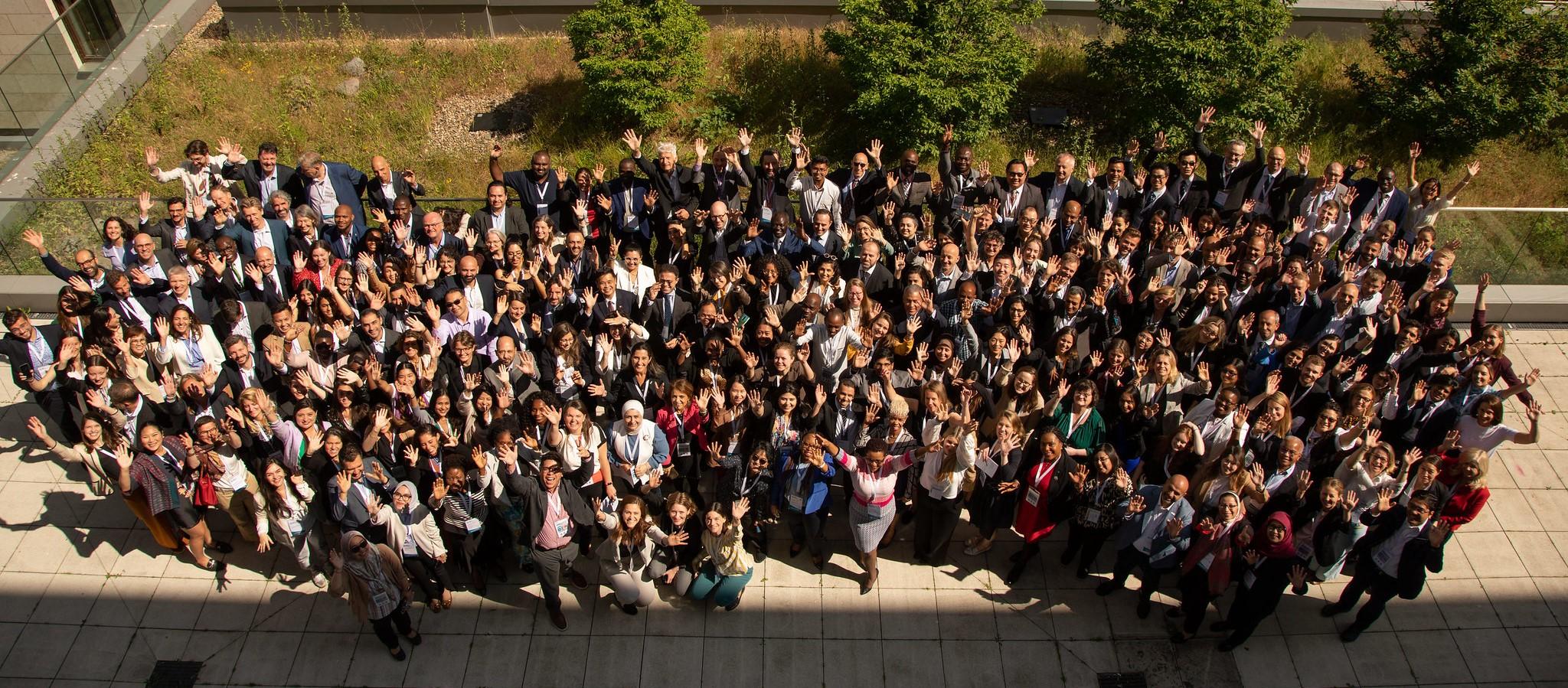
Photo: Global NDC Conference 2023, Berlin | © Jan Rottler
The world is currently off-track in its efforts to limit global temperature rise to within 1.5°C. The Global NDC Conference 2023 was a crucial space to bring together hundreds of actors to reaffirm our commitments to global climate action and take stock of collective progress.
As national climate pledges, Nationally Determined Contributions (NDCs) are the main frameworks guiding countries to make systems-level changes, across their economies to lower emissions and adapt to climate change.
Global forums like the NDC Conference provide a space for country coordination, exchanging innovation and building momentum among the climate community.
As Conference co-organizers, UNDP played an active role as we were joined by expert colleagues from the Climate Promise and the SCALA programme in designing and leading sessions across the three-day event. After departing from Berlin, here are three main takeaways.
1. We need all stakeholders at the table to overcome the climate emergency
The international climate community has come a long way over the past five years to bring more voices and diverse actors into climate talks. This year we saw over 40 countries at the conference and government officials from national and sub-national Ministries (Environment, Finance and Energy).
Participants noted that the Global NDC Conference stood out because it brought together more than just the standard set of climate actors. Joining countries in discussions were not only private sector and financial actors such as Multi Development Banks and institutional investors, but also civil society, research institutes, and representatives from youth, Indigenous groups and local communities, truly highlighting the power of multi-stakeholder collaboration.
The Conference featured examples of multi-stakeholder approaches that promote inclusive participation. We heard from youth from Bangladesh, Costa Rica and Uganda on how youth groups were involved in the drafting and validation of the NDCs and National Adaptation Plans and consulted on their countries’ priorities as part of the Climate Change and NDC committees. Their perspectives proved crucial both to strengthen the solutions to be adopted and to implement them.
Tackling the climate crisis will requires extending beyond regular coordination mechanisms and galvanizing whole-of-society efforts. One thing underscored was the need for collaborative leadership skills and frameworks necessary to convene different actors – often with opposing viewpoints – which can define a common agenda and co-create solutions. For example, Cool Up, an initiative which aims to create catalytic change in the refrigeration and air conditioning sector, brings together government, industry and finance sector actors to deploy and upscale sustainable cooling technologies. For industries that, on the surface, may seem as odds with the climate agenda, collaborations such as these showcase opportunities for alignment with a clean energy future.
Over the course of the Conference, we found discussions echoed the needs and priorities of stakeholder groups who are often on the margins of decision-making processes. These groups need to be considered more carefully and brought earlier into the processes that shape NDC implementation, particularly in the projects that support countries to reach their emission targets and adaptation objectives. Not only will this harness national, business, and community ownership towards climate initiatives, but it will also lead to more sustainable climate solutions.

Photo: © Jan Rottler

Photo: © Jan Rottler, graphic recording: Christoph J Kellner
2. Leveraging public sector finance to spur private finance
It has been well documented that the world will not be able to meet the goals of the Paris Agreement and 2030 Agenda without significant financial investment. Current estimates show that countries collectively need at least USD 5.8-5.9 trillion to deliver their NDCs.
We heard in discussions over and over again that there is a need for universal access to finance for climate action – not just in volume but also in effective and efficient access. While NDCs offer a unique investment prospectus for nationally driven climate action, they do not immediately elicit the financing needed to implement them.
That means that solutions to close this finance gap must rely on complementary public and private finance. The Conference highlighted innovative finance mechanisms that strategically utilize public finance to de-risk and leverage private institutional finance, such as the forthcoming GAIA blended finance initiative.
The initiative is supported by MUFG Mitsubishi, the Japanese financial institution, and will leverage concessional finance from the Green Climate Fund (GCF) to mobilize private sector capital into approximately 20 emerging markets in Asia, Africa and Latin America and the Caribbean for climate finance. The initiative has a target of $1.475 billion that will support both climate risk mitigation and adaptation, with a goal of 70 percent of financing directed towards the latter. Such mechanisms seek to address the multiple barriers and risks (both real and perceived) that can deter the private sector and private finance’s leadership in climate interventions and investments.
Another example is the SCALA Private Sector Engagement Facility which aims to support countries in engaging businesses in implementing climate plans to mobilize resources and develop innovative climate services solutions. This year, the Facility has already signed agreements with four Least Developed Countries: Niger, Sao Tome and Príncipe, Solomon Islands and Somalia. In addition to helping bridge the financing gap, the private sector is an important source of technical knowledge, human capital, and innovation.
As public finance is limited, making sure that it effectively contributes to de-risking private sector investment is critical. Supporting innovative blended finance mechanisms to play a catalytic role in aggregating finance, reducing risks, and creating investable projects, should be prioritized.

Photo: © Jan Rottler
3. Adaptation action and finance must also be prioritized
It is clear that climate change has continued to have widespread impacts on nature and people, with the most vulnerable communities disproportionately affected. Approximately 1.5°C warming could drive an additional 122 million people into extreme poverty by 2030. This reality is reflected in enhanced NDCs from Climate Promise supported countries. Over 93 percent have strengthened adaptation ambitions in priority areas such as food, water, and nutrition security; the safeguarding of economic assets from extreme climate events and disasters; and/or the protection and regeneration of natural capital.
Despite this progress in adaptation efforts across all sectors and regions, conference participants spoke of the major bottleneck for adaptation action: the availability and access to finance. Although financing has increased, the international demand for adaptation financing to developing countries is estimated to be 5-10 times below what is actually needed for implementation. As the impacts from our changing climate accelerate, this gap will continue to widen; annual adaptation costs are expected to swell to $160-340 billion by 2023 Adaptation specific finance is needed to meet these ever-rising costs.
Conference participants clearly emphasized that, in the race to net zero, adaptation and the finance needed to meet its’ ever-rising costs should not be forgotten. Investment in climate-resilient development is needed urgently and at-scale.
There is immense opportunity for NDC implementation to build on the long experience of countries in developing and implementing their National Adaptation Programme and Action (NAPAs) and through their process to formulate and implement their National Adaptation Plans (NAPs). Through these mechanisms, countries have both prioritized adaptation interventions and built capacities to plan, implement and monitor adaptation action.
As the climate community moves towards COP28, we must harness the learnings and momentum created from such events to further our collaboration and commitments to achieving the Paris Agreement targets. The future of our planet depends on it.
The Global NDC Conference was hosted by the Federal Ministry for Economic Affairs and Climate Action (BMWK) and the International Climate Initiative (IKI) and was jointly organized by UNDP, GIZ, and the NDC Partnership.



